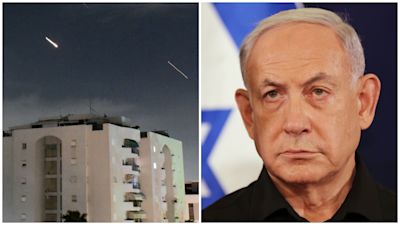The Israeli strike on Iran is the development that America has feared for days

The Israeli strike on Iran is the development that America has feared for days.
The Israeli counter-strike was not a surprise to President Biden. He was told in advance. But it was still another humiliation for the White House.
First, Biden had warned Iran not to strike Israel. "Don't," he warned Tehran. Iran did anyway.
Then he urged Israel not to retaliate. "Take the win," he told Prime Minister Netanyahu after the successful air defence against the barrage of Iranian missiles. Now it is clear Israel also ignored Biden.
It can be said that the regional war is already here.
Israel is now bombing Syria, Lebanon, Iran and Gaza. And it is conducting military operations across the occupied West Bank.
America and Britain are launching missiles at Houthi targets in Yemen.
For its part, Iran has launched missiles at Israel. Tehran's proxies in Lebanon are firing missiles into northern Israel, and in January Iraqi militants killed US troops in Jordan.
It's a big, complicated geostrategic mess. The civilian casualties in Gaza are the most unbearable consequence. As many as 13,000 children have been killed in the Israeli assault on the impoverished strip of land.
No one can know where this ends. It depends on calculations in Tel Aviv, Tehran and Washington, all of which are inter-connected, and being made by leaders under immense pressure.
Seven months ago, the US national security adviser, Jake Sullivan, wrote that "the Middle East is quieter than it has been in two decades."
How absurd that assessment now looks.
Want a quick and expert briefing on the biggest news stories? Listen to our latest podcasts to find out What You Need To Know...